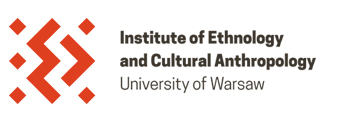Distributed Humanitarianism: Digital Disruption, Grassroots Labor, and Volunteer Affect in Poland’s Refugee Response
In-person lecture by Elizabeth Cullen Dunn (Director, Center for Refugee Studies, Indiana University Bloomington) and Iwona Kaliszewska (Institute of Ethnology and Cultural Anthropology, University of Warsaw):

What?
In the initial response to the Ukrainian crisis, large international humanitarian agencies were almost entirely absent. Instead, the response was carried out by loose networks of volunteers, self-organizing to create a flexible response often to the individual needs of refugees. In this talk, we will offer some preliminary thoughts about how the Polish response poses a challenge to the international humanitarian system, using digital technologies to disrupt it much like similar uses of technology have disrupted music or journalism. We will also look at how large-scale actors struggle to regain control of the response. What are the advantages of distributed humanitarianism, and what are its pitfalls? What does distributed humanitarianism reveal about trust in the state in the new age of post-neoliberalism? And how can institutionalized humanitarianism work alongside private volunteer action to provide both faster and more sustainable responses?
Who?
Elizabeth Cullen Dunn is Professor of Geography and Director of the Center for Refugee Studies at Indiana University. She has conducted field research in Poland since 1991, and has worked on forced migration and humanitarian action since 2008. She is the author of both Privatizing Poland: Baby Food, Big Business and the Remaking of Labor and No Path Home: Humanitarian Camps and the Grief of Displacement, both from Cornell University Press.
Iwona Kaliszewska is Assistant Professor at the Institute of Ethnology and Cultural Anthropology at University of Warsaw. Her research focuses on intersections among Islam, economy, state and anti-state violence, and more recently on war and humanitarian crisis. Iwona has been conducting research projects in Dagestan and Chechnya since 2004, and lately in the Polish-Ukrainian borderlands. Her most recent book Putin, Violence and Sharia in the North Caucasus will be soon published by the Cornell University Press.


